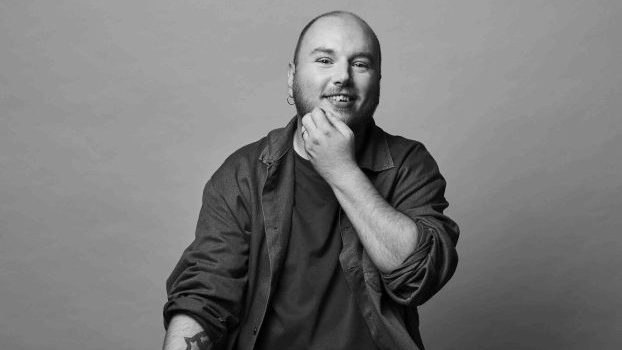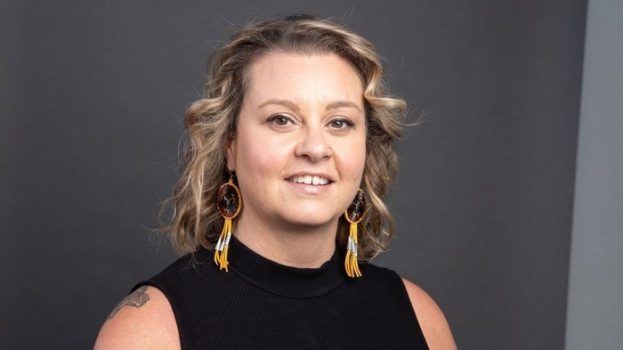
This story originally appeared in the March/April 2019 issue of strategy.
Frank Palmer sees his departure from DDB Canada as bittersweet.
On the one hand, Palmer, 78, looks back on the business he built in Western Canada with a sense of pride. He helped turn Trend Advertising (a small Western Canada ad shop) into Palmer Jarvis (an agency that spread across B.C. and the Prairies). In the ‘90s, it evolved again from a middle-of-the-road agency to an award-winning national powerhouse that helped establish the careers of industry leaders such as Bob Stamnes, Tom Shepansky, Chris Staples, Ian Grais, Denise Rossetto and Andrew Simon (to name a few). During its formative years, DDB also strove to present a rebellious culture that ran counter to the bland corporate vibe of the big network shops.
“I have no regrets!,” Palmer told strategy in an email in early January about his 50-plus-year-long career. As he prepares to step away from DDB on April 1, he lauds the agency team he leaves behind and the accomplishments they’ve made together.
But on the phone, the discussion focused more on how the industry is suffering under problems of its own making. Weakened client relationships and a race towards commodification changed the business, he says.
“Our business right now is about how many dollars per hour we can get for something,” he says. “I don’t want to be in the business of the blended hourly rate. That’s a race to the bottom.”
Palmer’s picture of modern advertising is not a flattering one. He believes it’s no longer a business based on trust between clients and agencies, and that a focus on rates has, predictably, changed agencies.
“Clients today are taking advantage of agencies, seeing how little they’ll work for, not how well they’ll work,” he says. “[They also] want to test everything. No great advertising gets through that sifting. Everyone’s using this as an excuse to not take responsibility for the lack of good work. Testing makes everything vanilla… Very little advertising today is remarkable because people are paying for it by the hour.”
Palmer led DDB Canada as its president – and later chairman – after selling Palmer Jarvis to Omnicom Group in 1997. And today, he believes the agency has the right leadership in place to stay competitive. He says president Helene Leggatt in Edmonton and president Patty Jones in Vancouver (who now work alongside newly appointed Toronto-based CEO and CCO Brent Choi), will maintain the “pirate” spirit that birthed his agency.
Anyone who’s worked for Palmer will tell you about one of his favourite mantras: “Be the pirates, not the navy.” It’s his business philosophy that advocates breaking the rules when necessary – an approach he fought to maintain after the Omnicom acquisition, when employees feared they’d lose the culture that made it a destination for ambitious creatives.
“We still try to be pirates,” he says, “but it’s getting harder and harder.”
Multinationals are less locally invested than they used to be, according to Palmer. Where the late Ken Kaess, president and CEO of DDB Worldwide, used to help Palmer on client pitches, he says that kind of involvement is getting rarer and rarer.
“Holding companies are shutting down and merging operations,” he says. “We’ll see more agencies merge than ever before because they’re losing revenue left, right and centre.”
The future, he says, favours entrepreneurs who can be nimbler and more selective in their partners… like today’s big agencies used to be, he argues. “It will be the age of independents.”
While many septuagenarians would retire, Palmer is set to run a new independent shop after he officially leaves DDB.
Dubbed THINC, the -style venture sees Palmer reunite with Bob Stamnes, who once oversaw Palmer Jarvis’s McDonald’s account and is now CEO of Vancouver-based Elevator Strategies.
THINC will operate in a few different spheres and will offer fairly standard marcom services – ads, branding and the like. But, primarily, Vancouver-based THINC is designed as a startup accelerator where Palmer can use his “relationship guy” skills to bring together brands and startups – which could include small ad agencies, tech companies, cannabis brands, among others – to develop their marketing strategy.
Startups will also get capital from the investor brands that he brings to the table (and possible investment from Palmer himself).
“The ever-changing marketing communication advertising landscape requires innovators and reinvention,” adds Palmer. “It’s not that advertising is dead. [Agencies just] don’t have any new tricks. Old school tricks don’t work anymore. The reality is that we now live in a… consumer-run world where brands are welcome to drop by, but only if they ditch the sales pitch and behave like regular people.”
Speaking frankly about Frank
 When I started at Palmer Jarvis in 1990, it was the biggest agency in Vancouver, but also the worst. [Frank] knew he wanted more respect for his business but had no idea how to get there [on his own]. The thing I learned from Frank was that you should just hire smart people, let them do their job, support them no matter what and stay out of their way. Frank hired [then-EVP of creative] Ron Woodall and six years later we topped the Creative Report Card in 1999. Frank kept the clients happy while the agency made this transition, and spent the rest of his career defending that culture from the multinationals. Frank always put people first and really cared about the agency’s product.
When I started at Palmer Jarvis in 1990, it was the biggest agency in Vancouver, but also the worst. [Frank] knew he wanted more respect for his business but had no idea how to get there [on his own]. The thing I learned from Frank was that you should just hire smart people, let them do their job, support them no matter what and stay out of their way. Frank hired [then-EVP of creative] Ron Woodall and six years later we topped the Creative Report Card in 1999. Frank kept the clients happy while the agency made this transition, and spent the rest of his career defending that culture from the multinationals. Frank always put people first and really cared about the agency’s product.
Chris Staples, partner and CD at Rethink
 We were hosting a bunch of clients at Sonora Resort. Typically on the first night at these things, people stay up and drink. The second night, Frank went to bed early and I decided that wasn’t gonna fly. We opened his bedroom door at about two in the morning, and a bunch of us with full coolers of ice doused him in his bed. That was caught on film. The next day, I’m at breakfast across from him. He has that Frank Palmer shit-eating grin on his face. He says ‘Davey-boy, did you have a good sleep?” I said yes and asked why. “You didn’t find anything in your bed?” I went back to my room and found that he’d gotten one of our fishing guides to put a live octopus under my pillow. It was still moving. I must have not noticed it the night before.
We were hosting a bunch of clients at Sonora Resort. Typically on the first night at these things, people stay up and drink. The second night, Frank went to bed early and I decided that wasn’t gonna fly. We opened his bedroom door at about two in the morning, and a bunch of us with full coolers of ice doused him in his bed. That was caught on film. The next day, I’m at breakfast across from him. He has that Frank Palmer shit-eating grin on his face. He says ‘Davey-boy, did you have a good sleep?” I said yes and asked why. “You didn’t find anything in your bed?” I went back to my room and found that he’d gotten one of our fishing guides to put a live octopus under my pillow. It was still moving. I must have not noticed it the night before.
David Leonard, former CEO at McCann Canada
 [Frank’s] demeanour and personality are always open and honest. And he makes you feel that you have this great bond. It’s a unique character trait that you don’t come across often. With me, he’s always been generous with his time and open about everything. I think that these traits have helped him and sustained him in the industry. He’s always the optimist, but lately he’s upset with the course that the industry is taking, its automation, et cetera. I imagine it’s one of the reasons that you don’t get big personalities like Frank in this business anymore.
[Frank’s] demeanour and personality are always open and honest. And he makes you feel that you have this great bond. It’s a unique character trait that you don’t come across often. With me, he’s always been generous with his time and open about everything. I think that these traits have helped him and sustained him in the industry. He’s always the optimist, but lately he’s upset with the course that the industry is taking, its automation, et cetera. I imagine it’s one of the reasons that you don’t get big personalities like Frank in this business anymore.
Alan Gee, chairman, creative at Arrivals + Departures
Milestones of a legacy
1969: Frank Palmer lobbies to be made partner of Trend Advertising in Vancouver.
1972: Trend Advertising is renamed Simon, Palmer and Leckie.
1974: The (again) renamed Palmer Jarvis lands the McDonald’s account in Western Canada.
1980s: The agency grows through acquisitions in Western Canada, including Freeman/Yipp in 1982 and Leggatt Price in 1988.
1993: Unsatisfied with the agency’s creative performance, Palmer hires Ron Woodall to lead a creative revolution.

1995: “Humungous Bank” campaign for Richmond Savings debuts with ads for a fictional monolithic bank. Richmond Savings would go on to double its assets under management over the campaign’s four years. The work would evolve, winning Best Advertising Campaign at The Lotus Awards two years later.
1997: The agency’s table at the Marketing Awards collapses under the weight of its many, many awards. Later that year, creative director Chris Staples collects so many trophies at The Lotus Awards, a chair is placed on stage to save him from repeated trips to the podium.
1998: Palmer Jarvis is acquired by Omnicom Group, which rebrands the agency’s six offices as Palmer Jarvis DDB.
1999: Palmer Jarvis DDB is named Agency of the Year by strategy, signaling its full emergence as a creative power house.
2000: The agency loses a tentpole client when McDonald’s consolidates its advertising nationally with Cossette. Despite the split, the relationship would endure and produce
awards in the future.
2001: Downtown Partners opens as a boutique affiliate in Toronto to primarily oversee work for Labatt Brewing Co. It would win Cannes Lions for the next three consecutive years for Labatt and Anheuser-Busch brands.
2004: Palmer Jarvis DDB is rebranded as DDB Canada and then-EVP creative Ron Woodall leaves the agency.
 2008: DDB launches Subaru Canada’s “Car Wash” a.k.a. “Sexy Sumos.” The campaign won numerous awards and was named Best of the Best at the CMA Awards.
2008: DDB launches Subaru Canada’s “Car Wash” a.k.a. “Sexy Sumos.” The campaign won numerous awards and was named Best of the Best at the CMA Awards.
2012: The agency wins the Canadian Tourism Commission and launches the “35 Million Directors” campaign. “It’s the kind of client you dream about,” says Palmer. “It’s a chance to help build the country.”
2012: Strategy names DDB Canada and Tribal DDB as Agency of the Year and Digital Agency of the Year, respectively.
 2013: Tribal DDB and Shopper DDB win three Cyber Lions from Cannes for its role in McD’s “Our Food. Your Questions.”
2013: Tribal DDB and Shopper DDB win three Cyber Lions from Cannes for its role in McD’s “Our Food. Your Questions.”
2014: DDB Canada wins Volkswagen Canada, eventually opening an office in Montreal to service the account.
2016: DDB launches an accelerator program nationally, called DDB Ignite, which is designed to collaborate with startups on their brand platforms and communications strategies.
2018: The agency wins the Rogers’ Wireless mass advertising and CRM business.























